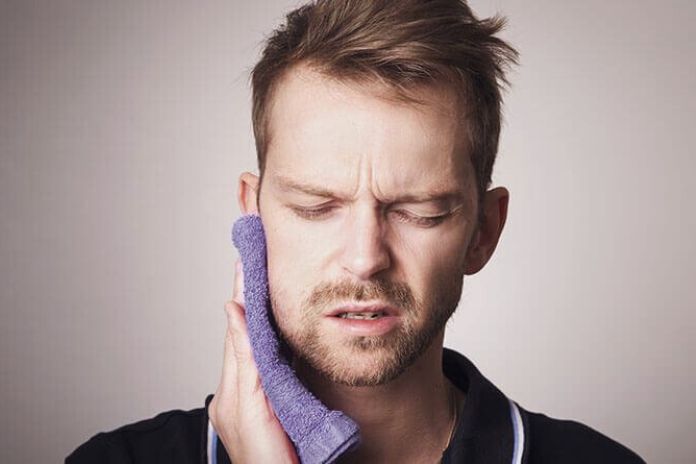What is implied by the meaning of dental neuralgia? What side effects does this problem show itself with, and what causes it? What cures can be executed to ease the aggravation? Here’s the beginning and end. You really want to be aware of the point.
What Is Dental Neuralgia?
The term tooth neuralgia alludes to the problem usually known as toothache. It shows itself as a fiery expression that causes agony and disturbance in the space of the dental curves. Sharp agonies, by and large, show up (which can keep going for a couple of moments or even whole days ) close to the elaborate tooth and can then spread to local regions. Not at all like the purported trigeminal neuralgia, in which the fifth cranial nerve is excited; on account of dental neuralgia, the issue influences the teeth and gums.
Within the sight of trigeminal neuralgia, as a matter of fact, the pathology is of a neuropathic type. It tends to be available in a persistent or long-winded structure, while when the issue concerns the teeth, the reference expert is the dental specialist, and there is no hindrance to the trigeminal nerve. Dental neuralgia is a highly irritating problem as the agony in the teeth (frequently alluded to as “electric shocks”) and severe agony can last a couple of moments or for quite a long time.
They are much of the time joined by different side effects that are challenging to bear, such for instance, the consuming sensation, the trouble in opening the mouth and, subsequently, in talking and eating, as well as the presence of real “wounds, for example, they are some of the time called, which branch from the mouth to a different region of the face.
Symptoms Of Dental Neuralgia
Dental neuralgia manifests itself with a wide variety of symptoms; however, the most evident and recognizable is certainly the pain, which can be present in the form of short-lasting episodic pangs or continuous. Among the typical manifestations that accompany this condition, we find :
- Pain felt in a tooth or dental arch;
- pain when chewing ;
- facial swelling ;
- burning sensation ;
- Swollen, red, and painful gums, particularly if you have gum neuralgia;
- bad breath ;
- Ear pain: mainly if the neuralgia affects the back teeth, the pain can radiate up to the ear;
- dental hypersensitivity ;
- Difficulty carrying out normal daily activities and, in particular, activities that involve the oral cavity (such as eating, speaking, etc.);
- inability to open the mouth completely ;
- solidness in the shoulder and neck region ;
- headache ;
- touch sensitivity ;
- bleeding gums ;
- The sensation of having electric shocks spreading from the teeth towards the face.
Causes Of Dental Neuralgia
Dental neuralgia is a relatively common occurrence and can appear more frequently in subjects over forty years of age. They are very painful and difficult to bear without the use of painkillers; if they appear, they constitute a symptom that should not be ignored, particularly if other manifestations accompany them. Teeth neuralgia can have various causes, the most frequent of which are:
- tooth decay ;
- gum inflammation under devitalized teeth ;
- bruxism ;
- Gum inflammation: the so-called gum neuralgia is caused, in most cases, by tissue inflammation such as periodontitis ;
- incorrect oral hygiene ;
- tooth eruption ;
- cyst ;
- irritation of the nerve of the tooth ;
- broken teeth ;
- dental abscesses ;
- poorly positioned dental implants ;
- periodontitis ;
- alveolitis ;
- dental surgery interventions ;
- dental granuloma ;
- stress;
- contact with irritants;
- Loss of milk teeth.
Gum or dental neuralgia, precisely because of the numerous factors that could cause it, is sometimes confused with trigeminal nerve neuralgia, given that the symptoms are similar in both conditions; also, for this reason, in the presence of tooth nerve pain, it is advisable to undergo a visit to the dentist to ascertain the causes of the problem and implement adequate treatment.
How To Cure Dental Neuralgia
Teeth neuralgia requires immediate remedies that can relieve the sometimes excruciating pain that affects the subject. First, it is therefore recommended that you take pain-relieving medications (NSAIDs) and contact your dentist immediately to schedule an evaluation. In the meantime, living with dental arch pain can be difficult; therefore, in addition to taking medicines, it is possible to put into practice some solutions that can relieve the discomfort. Among these are:
- brush your teeth very well with warm water, making sure there are no food residues;
- use dental floss ;
- apply an ice-based compress to soothe the oral cavity;
- eat foods rich in vitamin B and magnesium, which are beneficial for inflamed nerves ;
- avoid spicy foods and very salty and fatty foods, which can worsen inflammation;
- brush your teeth at least three times a day to prevent the accumulation of tartar and plaque;
- use a chlorhexidine-based mouthwash and a soft bristle toothbrush;
- Also, clean your tongue very well, where bacteria often accumulate.
Among the best solutions for tooth neuralgia is needle therapy, a procedure that comprises the use of specific sorts of needles close to unambiguous places of the body from where the aggravation emanates. Different medicines for unwinding are similarly demonstrated while hanging tight for a little while to the dental specialist.
To forestall torment in the nerves of the teeth from emerging, it is fundamental to take significant consideration of oral cleanliness, utilizing a toothbrush, dental floss, and, if essential, even mouthwash consistently. It is likewise prudent to go through dental cleanliness treatment on more than one occasion per year to keep an abundance of plaque and tartar from amassing inside the mouth. As a matter of fact, it is most of the time unequivocally these two components that, whenever disregarded, lead to tooth rot and gum irritation, which can, at last, prompt dental nerve torment.
Read Also: Is The Reflash Diet Healthy?




